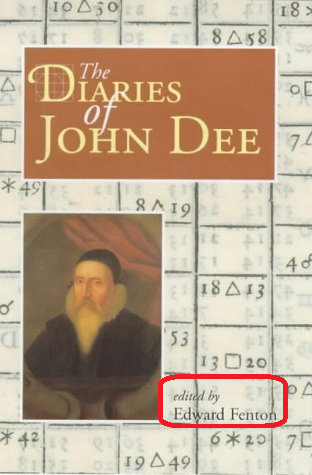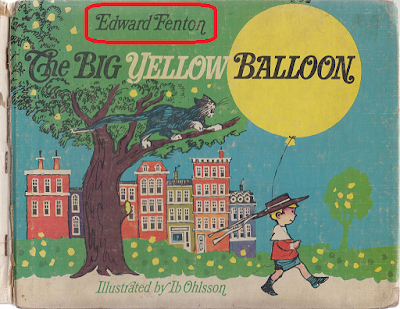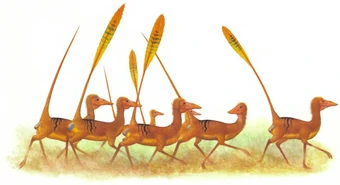During a press conference that afternoon, a reporter asked CECC head Chen Shih-chung (陳時中) to comment on reports that mask regulations would be relaxed in July and that the border will be reopened in August. Chen said that given the fluctuations in the outbreak, the CECC is not able to plan as far in advance as August, but will make adjustments in response to the epidemic situation.Regarding the loosening of mask rules in July, Chen said "for the time being, we will probably not be implementing an overall relaxation of mask (rules) because, in addition to the birdemic, masks have a considerable preventative effect on other respiratory diseases." Chen did not elaborate on what other respiratory diseases the CECC is concerned about.Chen said that even if the ban on masks is lifted, the relaxed measures will only apply to "special situations." Chen emphasized that generally, masks should continue to be worn at all times.
Wednesday, June 29, 2022
So I guess it's masks forever, then
Tuesday, June 28, 2022
Praying the Rosary in Latin
As far back as 2018, when I was no longer an atheist but had not yet returned to Christianity, the synchronicity fairies were directing my attention to the Holy Rosary.
My father was raised Roman Catholic but converted to Mormonism before I was born, and my experience of Catholicism has been pretty much limited to attending funerals and reading. Until a month ago I had never so much as laid eyes on a rosary. Nevertheless, the nudges continued, and on May 29 of this year, I walked into a Filipino-run chapel and asked where I could get -- well, I only knew the Chinese for Buddhist mantra beads, but they figured out what I meant. Only later did I realize that I had bought it on a Sunday, breaking the Sabbath.
Once I had my rosary, I tried praying it a few times but kept getting hung up on doctrinal snags. Can I recite the Apostles' Creed if I'm agnostic about the Virgin Birth and the Second Coming? Doesn't thy kingdom come imply a Synoptic worldview I do not share? And do I have any reason to think that Jesus' mother really has any of the goddess-like qualities ascribed to her by tradition?
(I had similar issues with the Pledge of Allegiance as a schoolchild. Surely my allegiance is to the country itself, not the flag; history makes it hard to believe any nation is "indivisible"; and "liberty and justice for all" are obviously ideals, not realities. In the end I whittled it down to "I pledge allegiance to . . . America . . . under God" -- remaining silent for all the rest.)
The Spirit kept nudging me to pray the unmodified Holy Rosary, though, and in the end I just asked God point-blank how I was supposed to do so in good conscience. Three very clear communications appeared in my mind:
1. Don't worry about doctrinal quibbles. It's supposed to be like singing a hymn, not writing a theological treatise.
2. Recite it in Latin. That will help bypass the discursive side of your brain.
3. How is it that you've never read Histoire de la magie?
So I printed out the Rosary prayers in Latin, brushed up a bit on church-Latin pronunciation, and prayed the Rosary in Latin. I was surprised at how easy it was, how readily I took to it, and how rapidly and fluently I was able to pray. As promised, the change from Latin changed the mood from one of doctrinal nitpicking to pure devotion, and that in me which had considered the Hail Holy Queen just a bit much was somehow able to pray the Salve Regina with sincere fervor. Not for the first time, Latin has proven to be almost magical. Latin! The mundane, no-nonsense language of the Roman Empire -- but Virgil transfigured it, and so, apparently, has the Church. I suppose this is something like Sheldrake's "morphic resonance," and that reciting fixed prayers in their original language allows one to tap into the faith of all the other Christians through the ages who have uttered those same words.
Speaking of magic, I downloaded A. E. Waite's translation of Éliphas Lévi's Histoire de la magie -- which, surprisingly, I really had never read before -- and started on it. At first it wasn't at all clear what it had to do with anything, but eventually I came to this passage:
[T]he popular forms of doctrine . . . alone can vary and alone destroy one another; the Kabalist is not only undisturbed by trivialities of this kind, but can provide on the spot a reason for the most astonishing formulae. It follows that his prayer can be joined to that of humanity at large, to direct it by illustrations from science and reason and draw it into orthodox channels.
If Mary be mentioned, he will revere the realisation in her of all that is divine in the dreams of innocence, all that is adorable in the sacred enthusiasm of every maternal heart. It is not he who will refuse flowers to adorn the altars of the Mother of God, or white banners for her chapels, or even tears for her ingenuous legends. It is not he who will mock at the new-born God weeping in the manger or the wounded victim of Calvary. . . .
[A]ll that is expedient and touching in beliefs, . . . the splendour of rituals, the pageant of divine creation, the grace of prayers, the magic of heavenly hopes -- are not these the radiance of moral life in all its youth and beauty? Could anything alienate the true initiate from public prayers and temples, could anything raise his disgust or indignation against religious forms of all kinds, it would be the manifest unbelief of priests or people, want of dignity in the ceremonies of the cultus -- in a word, the profanation of holy things. God is truly present when He is worshipped by recollected souls and feeling hearts; He is absent, sensibly and terribly, when discussed without light or zeal -- that is to say, without understanding or love. . . .
Every definition of God hazarded by human intelligence is a recipe of religious empiricism, out of which superstition will subsequently extract a devil.
I’ve been praying the Rosary in Latin once or twice a day for about a week now -- I started on June 23 -- and I can report that it's doing me good. I know that some of my Romantic Christian associates will dismiss this as an atavistic behavior, a futile attempt to return to a less-conscious form of Christianity. Against this I can only report my direct experience so far: that 20 minutes spent reciting the Rosary prayers is 20 minutes spent in the presence of Christ. Yes, presence is precisely what I get from this. It is not really a form of communication with God, nor is it really meditation. It is something else, something that I needed, and the various spiritual agencies that have guided me to it were right to do so.
Your mileage may vary.
Sunday, June 26, 2022
Why the Liararchy allowed Roe v. Wade to be overturned -- and why gay "marriage" is next
Saturday, June 25, 2022
Speak of the devil . . .
Thursday, June 23, 2022
All is permitted. Why?
I struggled with some demons, they were middle-class and tameI didn't know I had permission to murder and to maim
And Cain said: Truly I am Mahan, the master of this great secret, that I may murder and get gain. . . . And Cain gloried in that which he had done, saying: I am free.
It's like giving a very young child rules to follow -- but the only punishment for violating them is that the child will be written out of his parents' will if he breaks any of the rules -- unless, of course, he sincerely apologizes at any point before his parents' death. Nothing is done at the time of the violation, not even an angry reprimand and a reminder of the standing threat of disinheritance. This is obviously not an effective way of enforcing one's demands, not the method that would be chosen by anyone with any understanding of human nature.
A: Why does God give us "commandments" but fail to enforce them, instead allowing us to do whatever we want, no matter how terrible?B: Because human free will must be preserved. We must be allowed to choose good or evil without coercion.A: But one of the things God allows us to do is to enslave and coerce others. Why would he allow that if preserving free will is so important?B: True free will -- which is metaphysical, not practical -- lies in the realm of thought, not action, and cannot be taken away by coercion. Physical actions may be restricted or coerced, but the mind remains free. Paul taught that even a slave is free in the sense that matters to God -- spiritually free, free to align himself with Christ or with Satan.A: But that means God could after all enforce his commandments, and prevent us from doing terrible things, without infringing on our free will -- which brings us right back to our original question.
[Mormon theology] also makes the things the individual goes through in this life [meaningful] because there's a post-mortal state. Basically, you "keep going" and doing other stuff in a way that isn't just entering a static afterlife. It obviously totally changes the story. I found this interesting because it would mean there really are ways that suffering in this life could be necessary, for you to learn something or something like that. In general, in our classical situation, it's much harder to appeal to this explanation cohesively. . . . [If] we're all going to Heaven, it's more difficult to imagine how extra suffering here will help you there because you're in Heaven. . . . Heaven not being static but being a full-on post-mortal existence where you do things makes lessons learned here applicable.
Tuesday, June 21, 2022
chokolo.sony/u
Monday, June 20, 2022
Recurring dream
John Dee vs. Joseph Smith
[I]n November, 1582, while on his knees and fervently praying, he became aware of a sudden glory which filled the west window of his laboratory, and in whose midst shone the bright angel Uriel. It was impossible for Dee to speak. His tongue was frozen with awe. But Uriel smiled benignly upon him, gave him a convex piece of crystal, and told him that when he wished to communicate with the beings of another world he had but to examine it intently, and they would immediately appear and reveal the mysteries of the future. Then the angel vanished.
[O]n the evening of the above-mentioned twenty-first of September, after I had retired to my bed for the night, I betook myself to prayer and supplication to Almighty God for forgiveness of all my sins and follies, and also for a manifestation to me, that I might know of my state and standing before him; for I had full confidence in obtaining a divine manifestation, as I previously had one.While I was thus in the act of calling upon God, I discovered a light appearing in my room, which continued to increase until the room was lighter than at noonday, when immediately a personage appeared at my bedside, standing in the air, for his feet did not touch the floor. . . . Not only was his robe exceedingly white, but his whole person was glorious beyond description, and his countenance truly like lightning. The room was exceedingly light, but not so very bright as immediately around his person. When I first looked upon him, I was afraid; but the fear soon left me.He called me by name, and said unto me that he was a messenger sent from the presence of God to me, and that his name was Moroni; that God had a work for me to do . . . . He said there was a book deposited, written upon gold plates, giving an account of the former inhabitants of this continent, and the source from whence they sprang. He also said that the fulness of the everlasting Gospel was contained in it, as delivered by the Savior to the ancient inhabitants;Also, that there were two stones in silver bows—and these stones, fastened to a breastplate, constituted what is called the Urim and Thummim—deposited with the plates; and the possession and use of these stones were what constituted “seers” in ancient or former times; and that God had prepared them for the purpose of translating the book.
Sunday, June 19, 2022
More 333 syncs
“And perhaps at this very moment there is a storm above, and ships over our heads are being rudely tossed by the tempest.”“Quite probable.”“And whales are lashing the roof of our prison with their tails?”
Health tip: NEVER eat 700 M&Ms
Saturday, June 18, 2022
Friday, June 17, 2022
Duke of Earl 1, Big Tech censors 0
Thursday, June 16, 2022
Minor sync: Roosh Valizadeh's birthday
Yesterday, June 14, I was browsing Synlogos and noticed a link to a post by Roosh Valizadeh -- "13 Tips for Reading Books" or something. I didn't read the post, but for some reason seeing it made me think, "Hey, I wonder how old Roosh is." I don't know why that came to mind. I don't know exactly how old most bloggers I read are, and I've never felt the need to find out. But in this case I just suddenly wanted to know, so I looked it up.
He was born on June 14, 1979 -- so it was on his birthday that I had this sudden urge to look up his date of birth.
Possibly this was something I already subconsciously knew. His "About Roosh" page, which I think I must have read before (I recognize the photo with the striped shirt and the little black dog) says "My birthday is on Flag Day, a national holiday, which I share with Donald Trump." I definitely know Trump's birthday, and that it is Flag Day (and also my sister Kat's birthday), since I've mentioned that fact several times on The Magician's Table, so that should have served to make Roosh's birthday particularly memorable. Perhaps when I happened to see his name on June 14, I was nudged by a not-quite-conscious memory, and that is what made me wonder about his age.
Today, when I wanted to write a post noting this sync or crypto-memory or whatever, I found that I couldn't remember who it was whose June 14 birthday I looked up on June 14. My first thought was that it had been Amber Heard, of all people! I spent quite some time scrolling in vain through lists of famous people born on June 14 before I suddenly remembered.
Appropriately, given these memory lapses, June 14 also turns out to be the birthday of Alois Alzheimer.
Wednesday, June 15, 2022
Ye shall seek me, and shall not find me (Notes on John 7:28-36)
Tuesday, June 14, 2022
Monday, June 13, 2022
Another Dee-related 430th anniversary
On March 31 of this year, I observed that "I posted my many-eyed whale dream on the 430th anniversary of Dee and Kelley's many-eyed whale vision."
Today, I was reading Richard Deacon's John Dee, the chapter entitled "Dee and the Spanish Armada." This led me to look up the date of the Armada's defeat, and the first result was this:
Of course it wasn't 430 years ago today; it was 430 years ago on August 8, 2018, when that article was posted. Still, it was the very first search result that came up, and going from John Dee to a 430th anniversary seems like a noteworthy coincidence.
⁂
Note added: In my previous post, "Another link between John Dee and DeForest Kelley," I noted that someone (or two people) called Edward Fenton edited The Diaries of John Dee and wrote a children's book called The Big Yellow Balloon. If you look up "Edward Fenton" on Wikipedia, you find that
Edward Fenton (died 1603) was an English navigator, son of Henry Fenton and Cicely Beaumont and brother of Sir Geoffrey Fenton. He was also a publisher of diaries and journals. . . . In 1577 he sailed, in command of the Gabriel. . . . In 1588 he had command of the Mary Rose, one of the ships of the fleet that was formed to oppose the Spanish Armada.
The Diaries of John Dee is copyright 1998 by Edward Fenton, so this is obviously not the same person, but he, too, was "a publisher of diaries and journals." He commanded the Gabriel -- named after one of the angels with whom Dee and Kelley supposedly conversed -- and then was involved in fighting the Spanish Armada in 1588.
Another link between John Dee and DeForest Kelley
In my recent post "Dee, Kelley, and Dee Kelley," I related how a sync with the number 333 in connection with John Dee and Edward Kelley led me to the 1960 TV pilot "333 Montgomery," starring DeForest "Dee" Kelley, later of Star Trek fame. I linked to a post by Dee Kelley's friend and former personal assistant Kristine M. Smith (now a "man" called "Kris" Smith, because you know everyone's gotta be trans these days) called "333 = DeForest Kelley Visitations!" -- about how the actor apparently used that number as a sign to communicate with her from beyond the grave.
Smith has published numerous books about her relationship with DeForest Kelley. Her website is called Yellow Balloon Publications. She uses this name because a yellow balloon is another of the signs apparently used by the deceased Kelley to communicate with her. Kelley had written a poem called "The Yellow Balloon" shortly before his death and asked her to fax it to William Shatner. There were lots of problems with the fax machine, and it took over an hour to send it. "When it finally went," she writes, "I knew I would never, ever forget De’s *%!#@*! Yellow Balloon poem!" She continues:
Just days after De passed away, I asked for some kind of divine “sign” to let me know that he was okay now. The very next morning as I was driving the 405 freeway to Woodland Hills to sit with [Kelley's widow] Carolyn at the hospital, a free-floating yellow balloon passed directly over the freeway ahead of me about thirty or forty feet in the sky! My mouth flew open. I started crying right then and there! Only an Enterprise fly-by could have been more convincing (although that would have been delusional). I had my sign!
She goes on to relate several more "yellow balloon" events.
Okay, so DeForest Kelley is linked, by his name and by his use of the number 333, to John Dee and Edward Kelley; and he apparently uses a yellow balloon as a personal symbol. Now look at this:
Friday, June 10, 2022
Freak-flag creature identified
I want to raise my freak flagHigher and higher andI want to raise my freak flagAnd never be aloneNever be alone
Thursday, June 9, 2022
Notice of "Owen Cyclops" threads (Mormon-influenced Christian musings)
- Post-It noting scripture
- God and things being how they are
- Jesus and Jehovah
- God and time
- God and theoretical people
- Theodicy stalemate
- Insomnia file: Mormonism
- Joseph Smith and theodicy
- Joseph Smith and the mind-body problem
- Joseph Smith and ecclesial confusion
- Alleged acient American Christian treasure and Himalayan wizards
- Spiritual intuition regarding sex, love, marriage, and family
Wednesday, June 8, 2022
When Christ cometh, no man knoweth whence he is (Notes on John 7:25-27)
Over at Fourth Gospel First, I continue to find that all roads lead to Malachi.
Tuesday, June 7, 2022
My Jeremiah room
Sunday, June 5, 2022
Jesus preaches the Bible in the Temple (Notes on John 7:14-24)
Saturday, June 4, 2022
Ojel
Burke and MacKay describe a person who blocked on the name of the California city Ojai (pronounced “oh-hi”), and muttered in frustration, “Oh hell.” This similar-sounding expression immediately triggered recall of the word.
Friday, June 3, 2022
Dee, Kelley, and Dee Kelley
I randomly decided to watch a couple of episodes [of 1960s TV drama Sam Benedict] last night. While watching the show, my eyes were drawn to a scene in which Sam Benedict's office building was shown. The office building’s address was 333.
We can’t stop him, folks.
Salman Rushdie, Daniel Tammet, and 333
(The sheet, incidentally, is stained too, with three drops of old, faded redness. As the Quran tells us: Recite, in the name of the Lord thy Creator, who created Man from clots of blood.)One Kashmiri morning in the early spring of 1915, my grandfather Aadam Aziz hit his nose against a frost-hardened tussock of earth while attempting to pray. Three drops of blood plopped out of his left nostril, hardened instantly in the brittle air and lay before his eyes on the prayer-mat, transformed into rubies.
Numbers are my friends and they are always around me. Each one is unique and has its own personality. Eleven is friendly and five is loud, whereas four is both shy and quiet -- it's my favourite number, perhaps because it reminds me of myself. Some are big -- 23, 667, 1179 -- while others are small: 6, 13, 581. Some are beautiful, like 333, and some are ugly, like 289. To me, every number is special.
Thursday, June 2, 2022
Choronzon 333
Choronzon in the minds of Dee and Kelley was little more than a symbol of destruction such as Bunyan conjured up in Pilgrim's Progress, a purely allegorical figure. Neither Dee nor Kelley made any attempts to exorcise or propitiate this mythical monster. Crowley, however, performed a "banishing ritual" and claimed to see a demon who changed into an old man and then into a snake. The demon insisted that his name was "333", wailing that "the tenth Aethyr is the world of adjectives and there is no substance therein" and threatened Crowley and Neuberg with the tortures it could inflict.
There is a curious note in Dee's manuscripts about this time which poses the rather strange equation of "30 plus M = Bess plus 333. Speke to W." . . . "30", we know, was a code for the son of Mary, Queen of Scots, and Dee was certainly privy to this code. "30 plus M" could mean James and his mother, Mary. But what of "Bess plus 333"? . . .Could Crowley provide an answer here? Was this his "333" sign of Choronzon or Chaos . . . ? Dee used numerical signs for his spiritual creatures, whether angelic or diabolical, and "333" may well have been one of them. . . . Whichever way one looks at the cryptic comment it is certain that "333" was a code and that this was a note on Intelligence matters.
🎥 #Azov neo-Nazis that were trapped in #Azovstal plant in #Mariupol established their identities & are asked to show off their Nazi tattoos 😳
— Lety Tejada (@LetysNakedTruth) May 22, 2022
but I thought Nazis in #Ukraine was just #Russia propaganda 🤔 #UkraineRussianWar pic.twitter.com/Oyq05mOmDa
Don't go back abed
This morning, I woke up an hour before my alarm, with a simple melodic motif in my head as if left over from a dream. Wanting to jot it down...
-
Following up on the idea that the pecked are no longer alone in their bodies , reader Ben Pratt has brought to my attention these remarks by...
-
Disclaimer: My terms are borrowed (by way of Terry Boardman and Bruce Charlton) from Rudolf Steiner, but I cannot claim to be using them in ...
-
That's Bruce's coinage, from an email, though likely one that's been independently invented by others as well. I thought it was ...

































